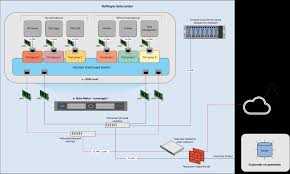 Having worked at IBM since 1982, John Teltsch currently serves as the general manager of Global Business Partners. Recently, John Teltsch worked closely with the team at Red Hat, which was acquired by IBM in July 2019.
Having worked at IBM since 1982, John Teltsch currently serves as the general manager of Global Business Partners. Recently, John Teltsch worked closely with the team at Red Hat, which was acquired by IBM in July 2019.
A technology company, Red Hat is a top provider of software tools for writing cloud computing applications. Focusing on open-source software, Red Hat furnishes its basic code for free, but it has distinguished itself from other open-source software vendors by generating strong revenues through additional products and services, including add-on programs and technical support. In 2018, the company made $3.4 billion in revenue, a 15 percent growth over 2017.
The two companies announced the decision to move forward with the acquisition in October of 2018, and the European Commission approved the acquisition at the end of June 2019. The total cost of the acquisition of the open-source software merchant was $34 billion. The two tech companies have stated they intend to primarily operate independently with the shared vision of establishing the best partner ecosystem programs in the world.

